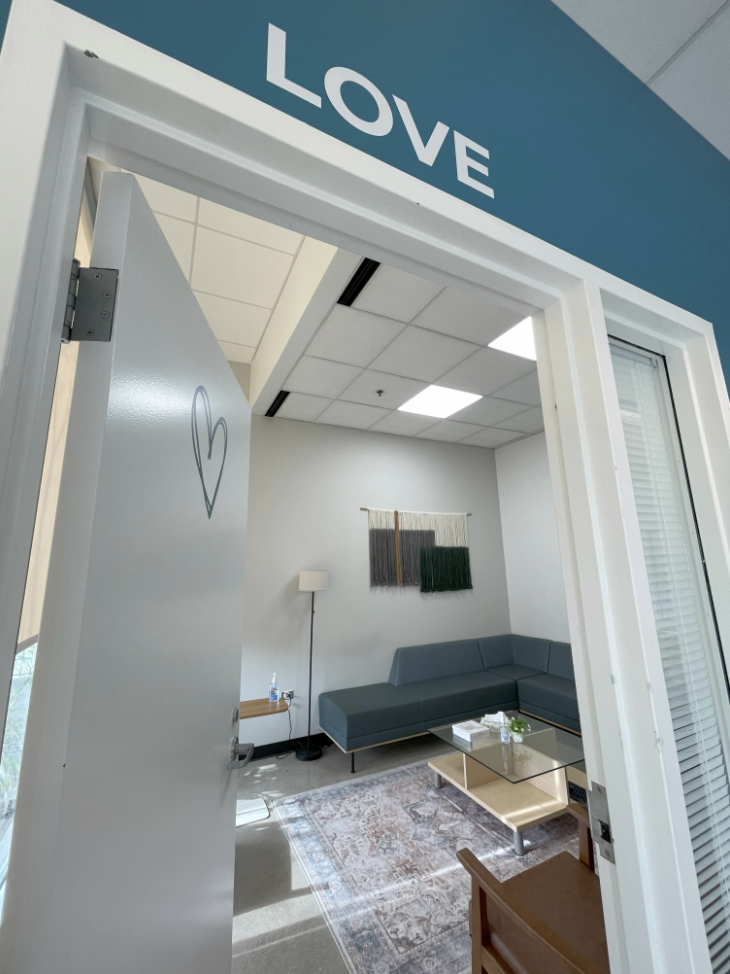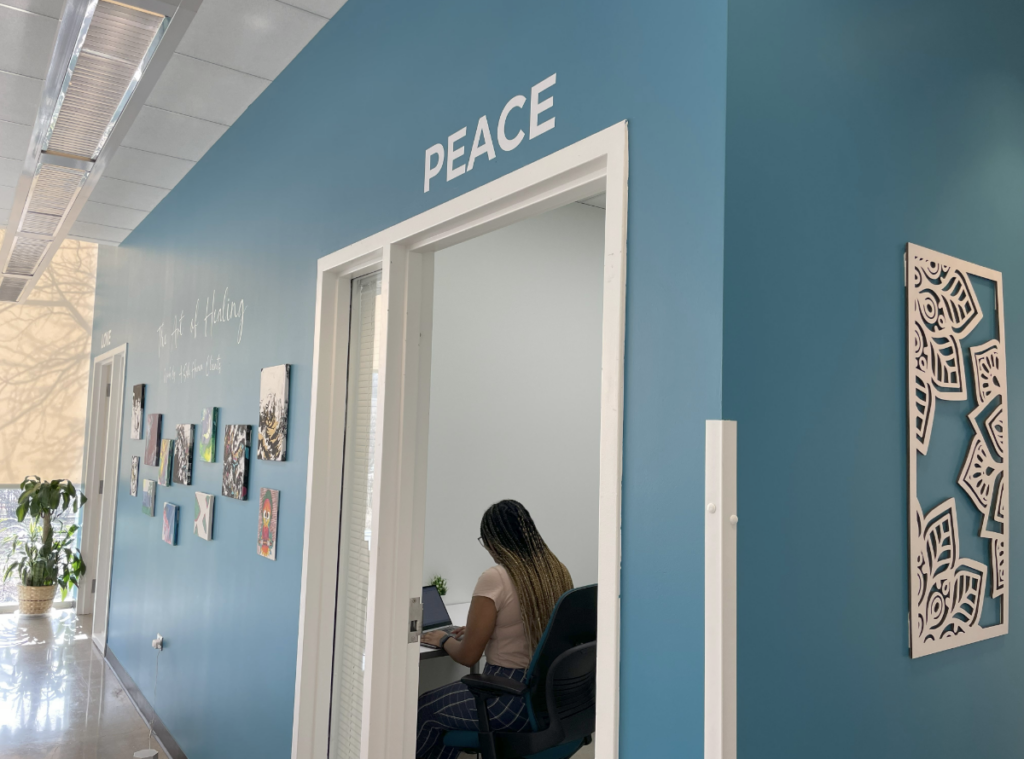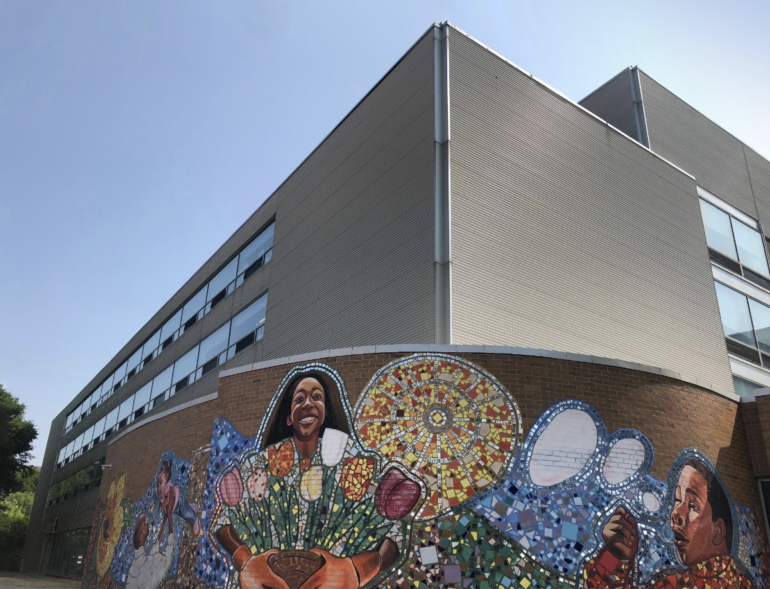A Safe Haven Foundation (ASHF) is a Chicago-based organization with a proven record of empowering individuals experiencing homelessness, behavioral health crises, and substance use disorders to achieve sufficiency. ASHF serves clients of all ages, including children and seniors from all 77 Chicago communities.
For over 20 years, ASHF has led the charge in helping individuals experiencing homelessness through an innovative and cohesive approach, designed to uplift every person who comes through their doors. Their employment center connects individuals with career opportunities; their adult education department grants people academic skills; the vocational training wing gives residents an opportunity to receive accreditation and job placement in one of five industry specific career paths; and their range of housing options, including emergency/transitional and affordable supportive — all designed to support individuals and families as they work toward a better future. And now, they’ve launched the latest enrichment of their multi-pronged strategy — a Community Mental Health Center (CMHC) that is open to ASHF clients and the public. The Center is onsite at their 125,000-square foot main campus in the heart of the North Lawndale community, serving as a premier location for medical support and behavioral health for residents on the West Side of Chicago.
The program addition plays a vital role as ASHF expands its reach for Chicago’s homeless population, while addressing the opioid and overdose crisis, mental health, primary care and improving access to essential medicines. Drug overdose is one of the leading causes of injury-related death in the United States, surpassing even deaths caused by motor vehicle crashes. It is an escalating national tragedy that our city is not immune to. Last year, over a 1,000 people in the Greater Chicago area passed away due to an opioid-related overdose. As such, there is a concerted effort on our part to combat this epidemic by connecting people with life-saving support. A Safe Haven Community Mental Health Center is a part of this broad strategy, partnering with the City of Chicago, Cook County and the State of Illinois stakeholders to address the fatal dangers of substance use disorder.
The CMHC will provide support in multiple ways, by providing medication for Opioid Use Disorder, psychiatric support, as well as individual and group sessions with Therapeutic Counselors. The physical symptoms can be treated through medication, but the path toward full recovery requires the mind, body and spirit to be resilient, motivated and inspired.

ASHF team of on-site professionals are equipped to guide people through this journey and away from the path of continued drug use. This includes a Medical Director, Psychiatrists, and Therapeutic Counselors who assist with the reduction and incidence of fatal overdose and future use. The Center’s overdose education and naloxone training programs teach individuals to recognize the signs of opioid overdose, risk factors for opioid overdose — e.g., mixing opioids with other sedatives, drug potency or purity considerations, high dosage of prescription opioids, using opioids alone — and how to administer overdose reversal medication during an opioid overdose.
Winning The Fight Against Homelessness
ASHF fights to overcome all disparities in accessing affordable housing and comprehensive healthcare. The CMHC helps with exactly that, both by reaching individuals in crisis in need of support and connecting them to the care they need. It’s a symbol of A Safe Haven Foundation’s commitment to transforming their community, uplifting the most vulnerable, and working with invested stakeholders, to better people’s lives. By offering stability, opportunity and hope, ASHF is ending homelessness, one person at a time.

Housing is the principal service that ASHF provides to our clients. We believe housing serves as a form of healthcare and provides the first step in healing for a myriad of other issues. ASHF offers a variety of housing options and recovery settings, including emergency, interim, permanent supportive, recovery homes, veteran housing, senior housing and affordable housing. We have a network of locations throughout metropolitan Chicago that serve communities with the greatest needs. All clients are assessed for housing needs and placed into the appropriate level of care.
Stable housing not only provides privacy and safety, but it is also a place to rest and recuperate from surgery, illness and other ailments without worrying about where to sleep and find a meal or how to balance these needs with obtaining health care and social services. The best, most coordinated medical services are not very effective if the patient’s health is continually compromised by street and shelter conditions. Even inpatient hospitalization or residential drug treatment and mental health care do not have lasting impacts if a client has to return to the streets or shelters upon discharge.
The Solution: Housing is Healthcare
Housing and health care work best together and are essential to preventing and ending homelessness. Health care services are more effective when a client is stably housed, and in turn, maintaining housing is more likely if proper health care services are delivered. While there are many factors that influence health, stable housing is a key “social determinant of health” that directly impacts health outcomes. While some need only short-term assistance to regain health and reconnect to employment and housing on their own, others may be so seriously ill and/or disabled they will need longer-term support services in order to maintain housing. Either way, housing is necessary to realize a healthier society. Communities that invest in affordable housing incur lower public costs, achieve better health outcomes, and work to prevent and end homelessness.
How to Help:
Donate today to help ASHF continue its critical outreach that has served the Chicagoland community well for nearly 30 years. For more information about A Safe Haven and their life-saving work, visit A Safe Haven online or call 773- 435-8300.


